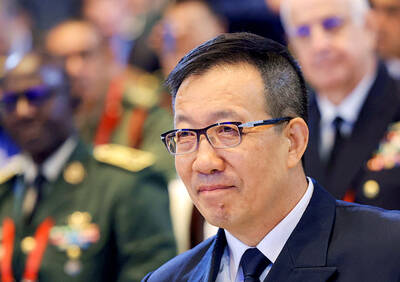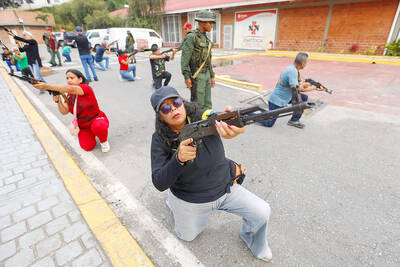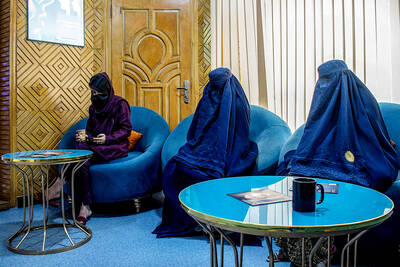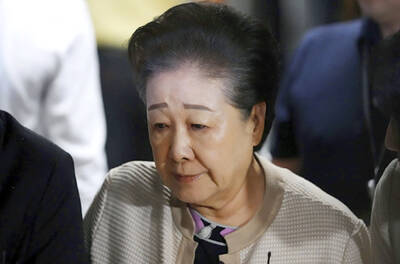Federal prosecutors charged a former government informant on Monday with the largest case of credit and debit card data theft ever in the US. They accused the man of swiping 130 million accounts on top of 40 million he stole previously.
Albert Gonzalez, 28, who lives in Florida, broke his record for identity theft by hacking into retail networks, prosecutors said, adding that his illicit computer exploits ended when he went to jail on charges stemming from an earlier case.
Gonzalez is a one-time informant for the US Secret Service, which he helped hunt hackers, authorities said. The agency later found out that he also had been working with criminals and feeding them information on investigations, even warning off at least one individual, authorities said.
Gonzalez, already in jail awaiting trial in a hacking case, was indicted on Monday in the state of New Jersey and charged with conspiring with two other unidentified suspects to steal the private information. Prosecutors said the goal was to sell the stolen data to others.
Prosecutors said Gonzalez, who is known online as “soupnazi,” targeted customers of convenience store giant 7-Eleven Inc and supermarket chain Hannaford Brothers Co Inc. He also targeted Heartland Payment Systems, a New Jersey-based card payment processor.
The indictment said Gonazalez and his two Russian co-conspirators would hack into corporate computer networks and secretly place “malware,” or malicious software, that would allow them back-door access to the networks later to steal data.
Gonzalez faces up to 20 years in prison if convicted on the new charges. His lawyer did not immediately return a call for comment.
Gonzalez is awaiting trial next month in New York state for allegedly helping hack the computer network of the national restaurant chain Dave and Buster’s.
The US Justice Department said the new case was the biggest alleged credit and debit card data breach ever charged in the US, based on a scheme that began in October 2006.
Gonzalez allegedly devised a sophisticated attack to penetrate the computer networks, steal the card data and send that data to computer servers in California, Illinois, Latvia, the Netherlands and Ukraine.
Also last year, the Justice Department announced additional charges against Gonzalez and others for hacking retail companies’ computers for the theft of approximately 40 million credit cards. At the time, that was believed to have been the biggest single case of hacking private computer networks to steal credit card data, puncturing the electronic defenses of retailers including T.J. Maxx, Barnes & Noble, Sports Authority and OfficeMax.
Prosecutors charged that Gonzalez was the ringleader of the hackers in that case.
At the time of those charges, officials said the alleged thieves were not computer geniuses, just opportunists who used a technique called “wardriving,” which involved cruising through different areas with a laptop computer and looking for accessible wireless Internet signals. Once they located a vulnerable network, they installed so-called “sniffer programs” that captured credit and debit card numbers as they moved through a retailer’s processing networks.
Gonzalez faces a possible life sentence if convicted in that case.
Restaurants are among the most common targets for hackers, experts said, because they often fail to update their anti-virus software and other computer security systems.
Scott Christie, a former federal prosecutor now in private practice in New Jersey, said the case showed that despite the best efforts by companies to protect data privacy, there remained individuals capable of sneaking in.
“Cases like this do cause companies to sit up and take notice that this is a problem and more needs to be done,” Christie said.

BEIJING FORUM: ‘So-called freedom of navigation advocated by certain countries outside the region challenges the norms of international relations,’ the minister said Chinese Minister of National Defense Dong Jun (董軍) yesterday denounced “hegemonic logic and acts of bullying” during remarks at a Beijing forum that were full of thinly veiled references to the US. Organizers said that about 1,800 representatives from 100 countries, including political, military and academic leaders, were in Beijing for the Xiangshan Forum. The three-day event comes as China presents itself as a mediator of fraught global issues including the wars in Ukraine and Gaza. Addressing attendees at the opening ceremony, Dong warned of “new threats and challenges” now facing world peace. “While the themes of the times — peace and development —

Venezuela on Saturday organized a day of military training for civilians in response to the US deployment in the Caribbean, and amid new threats from US President Donald Trump. About a month ago, Washington deployed warships to international waters off Venezuela’s coast, backed by F-35 jets sent to Puerto Rico in what it calls an anti-drug and anti-terrorism operation. Venezuelan Minister of Defense Vladimir Padrino Lopez has accused Washington of waging “undeclared war” in the Caribbean, after US strikes killed over a dozen alleged drug traffickers off his country’s coast. Caracas also accused the US of seeking regime change, and

Decked out with fake crystal chandeliers and velvet sofas, cosmetic surgery clinics in Afghanistan’s capital are a world away from the austerity of Taliban rule, where Botox, lip filler and hair transplants reign. Despite the Taliban authorities’ strict theocratic rule, and prevailing conservatism and poverty in Afghanistan, the 20 or so clinics in Kabul have flourished since the end of decades of war in the country. Foreign doctors, especially from Turkey, travel to Kabul to train Afghans, who equally undertake internships in Istanbul, while equipment is imported from Asia or Europe. In the waiting rooms, the clientele is often well-off and includes men

BRIBERY ALLEGATIONS: A prosecutor said they considered the risk of Hak-ja Han tampering with evidence to be very high, which led them to seek the warrant South Korean prosecutors yesterday requested an arrest warrant for the leader of the Unification Church, Hak-ja Han, on allegations of bribery linked to the country’s former first lady and incitement to destroy evidence. The move came a day after the 82-year-old was questioned over her alleged role in bribing former first lady Kim Keon-hee and a lawmaker. Founded in 1954 by her late husband, Sun Myung Moon, the Unification Church has long been the subject of controversy and criticism, with its teachings centered on Moon’s role as the “second coming” and its mass weddings. Followers are derisively referred to as “Moonies.” However, the church’s